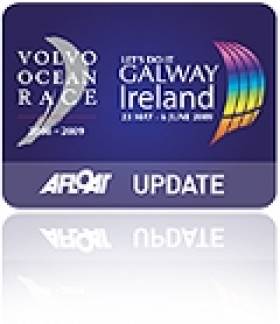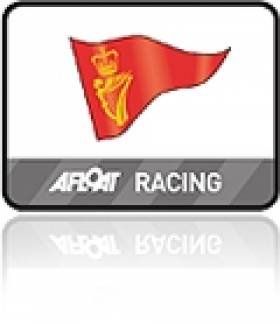Displaying items by tag: Éric Tabarly
Fifty years after France's legendary Eric Tabarly was winning "just about everything" with his 60ft alloy ketch Pen Duick VI, his daughter Marie is "99% certain" to race the boat in the SSE Renewables Round Ireland Yacht Race 2022 from Wicklow on June 18th.
Ireland meant a lot to Eric Tabarly. Forty-eight years ago, in 1974, he campaigned Pen Duick VI in the RORC Cowes-Cork Race. Started in a near-gale from the southwest, it was a windward slugging festival for most of the way, and though the breeze eased towards te end, by that time Pen Duick VI was in Crosshaven, line honours winner and soon overall winner as well.
With time in hand, Tabarly was able to make a personal pilgrimage in Cork Harbour, up to Carrigaloe. There, in 1898, the first Pen Duick, a 43ft Fife-designed cutter and his favourite boat of all, was built alongside boats of the new Cork Harbour One Design Class.
 The first Pen Duick - a 43ft Fife cutter built in Cork Harbour in 1898 - was Eric Tabarly's favourite boat
The first Pen Duick - a 43ft Fife cutter built in Cork Harbour in 1898 - was Eric Tabarly's favourite boat
VOR Skipper Cammas Receives French Sporting Honour
Volvo Ocean Race skipper Franck Cammas has been presented with one of France’s most prestigious sporting honours.
The man in charge of the Groupama sailing team was awarded the Grand Prix de l’Académie des Sports in Paris recently, recognising his achievements in sailing in 2010.
These included his skippering of the 100ft trimaran Groupama 3 non-stop around the world in a record-breaking in 48 days, 7 hours, 44 minutes and 52 seconds.
Cammas is only the fifth sailor to be presented with the award, following Whitbread Round the World Race skipper Eric Tabarly, 1983 America’s Cup winner John Bertrand, solo sailor Isabelle Autissier and Alinghi team principal Ernesto Bertarelli.
But Cammas isn't resting on his laurels, as he's currently preparing with his team to compete in the next Volvo Ocean Race kicking off next month.
He will lead a crew of 11 sailors - including Kerryman Damian Foxall - on the 70ft monohull Volvo Open 70 Groupama 4 in the 39,000 nautical mile race, which is set to conclude in Galway next summer and will also involve Wexford sailor Justin Slattery, who is in the crew for Team Abu Dhabi.
The action starts in Alicante, Spain on 29 October with the first in-port race. The first leg to Cape Town then begins on 5 November.
An tSciocháin, a 1956 Bounty ll, crewed by five volunteers from the Crosshaven Lifeboat and skippered by Pat Fagan was the sole Irish entry in La Coupe des TROIS Phares that departed Crosshaven for France at the weekend.
An tSciocháin is skipperd by Pat Fagan with crew members Brendan Fagan, Pat Harris, Alan Barton and Gus O’Donovan
The competitors crossed the start line at the mouth of the harbour between the committee boat and the E4 mark under National Race Officer, Richard Leonard assisted by RCYC Admiral Paddy McGlade writes Claire Bateman.
The event is a long-range cruising-race the classic yachts from
With a northerly wind and an ebbing tide (PHOTOS BELOW) the sailors were wise in being a little bit shy of the line but with spinnakers hoisted off they went and made a pretty sight as they headed out into the open sea watched by spectator boats including the Crosshaven Inshore Lifeboat. returning from exercise. The fleet was accompanied by their mother ship Notre Dame des Slots and other vessels.
There was a very nice gesture from the competitors as each yacht saluted and thanked the Race Officer as they passed the committee boat.
No doubt many of the boats had stories attaching to them but none more so than the yacht Pen Duick ll formerly owned by the late Éric Tabarly and now in the ownership of the École Nationale de Voile. Monsieur Tabarly, a former French Naval Officer was often known as the father of French sailing.
It has been a very enjoyable week for both the Competitors and the Royal Cork Yacht Club concluding with a dinner in their honour last evening (Fri) complete with traditional Irish entertainment consisting of music and dancing with the French visitors joining in with gusto. The partying went on until the early hours of the morning. Many friends were made and there is expectation they will return again to the Royal Cork Yacht Club in 2012.

Pat Fagan's 'An tSiochain' departs Cork Harbour for France. Photos: Bob Bateman
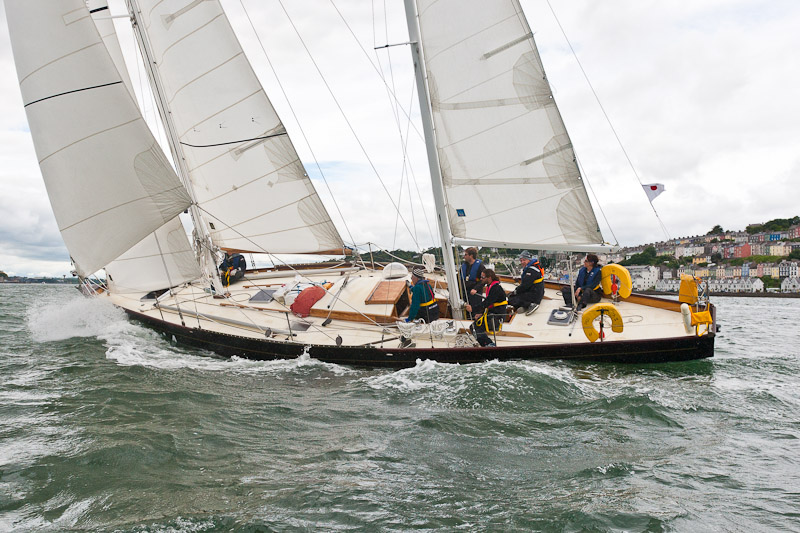
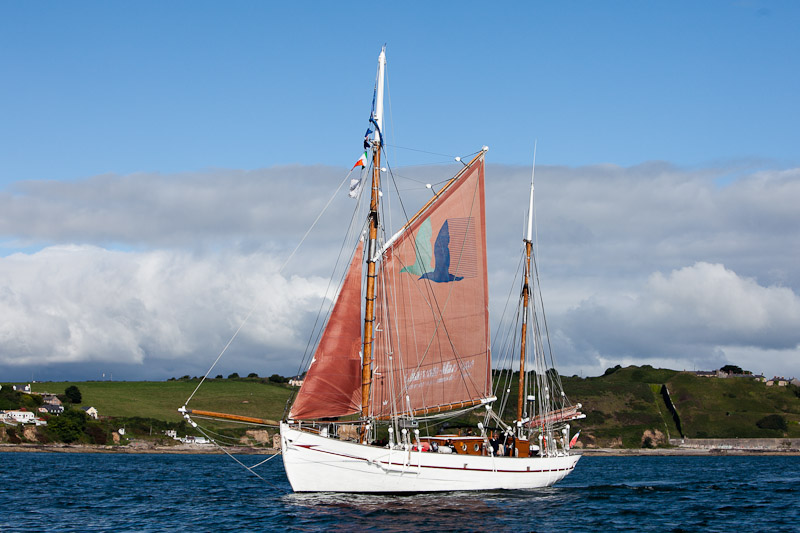
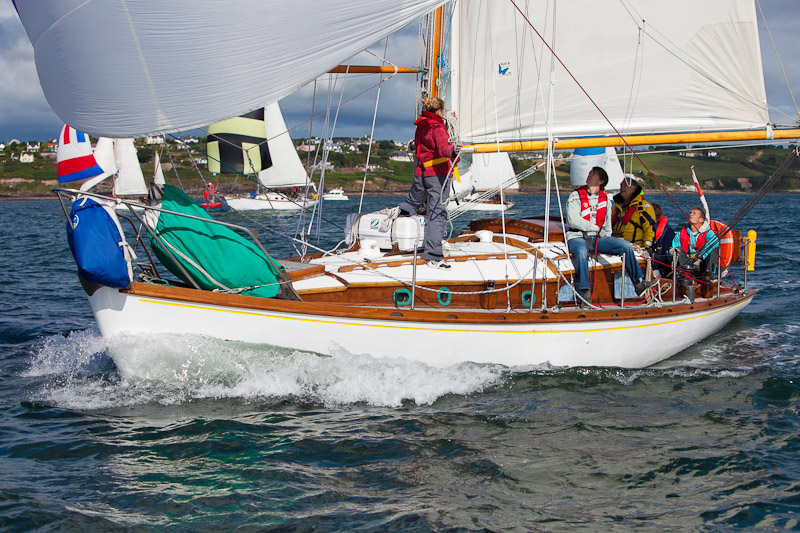
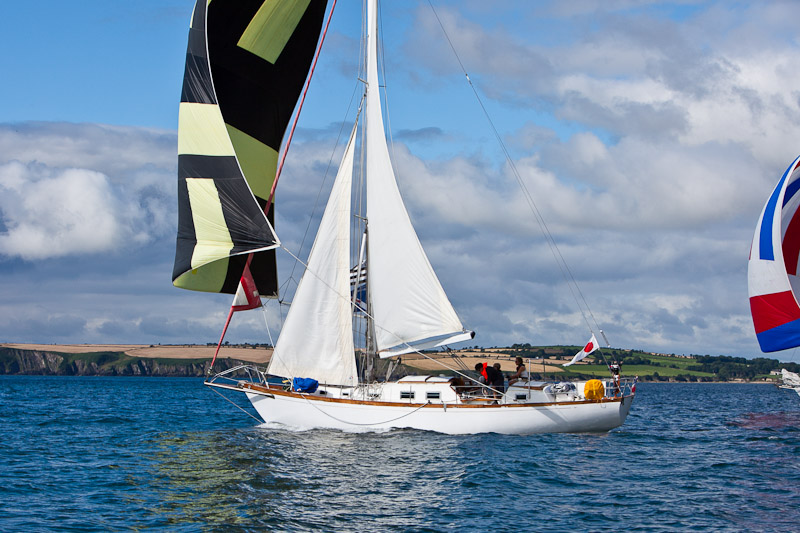
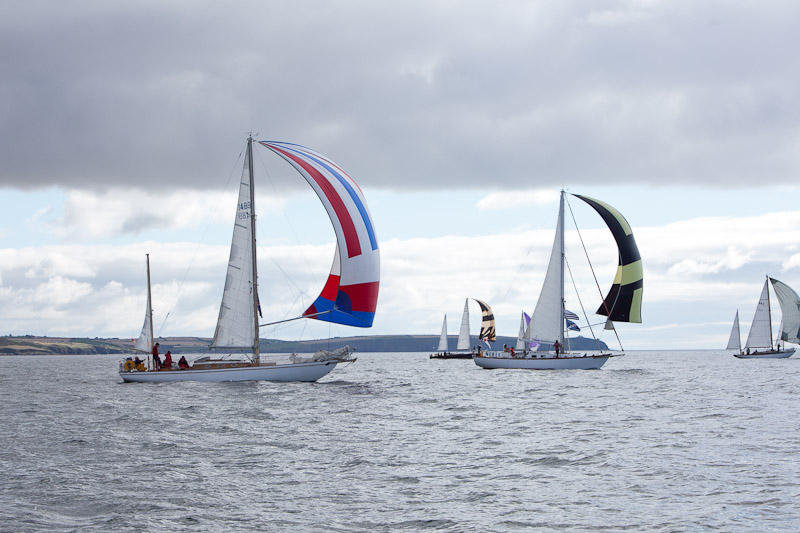
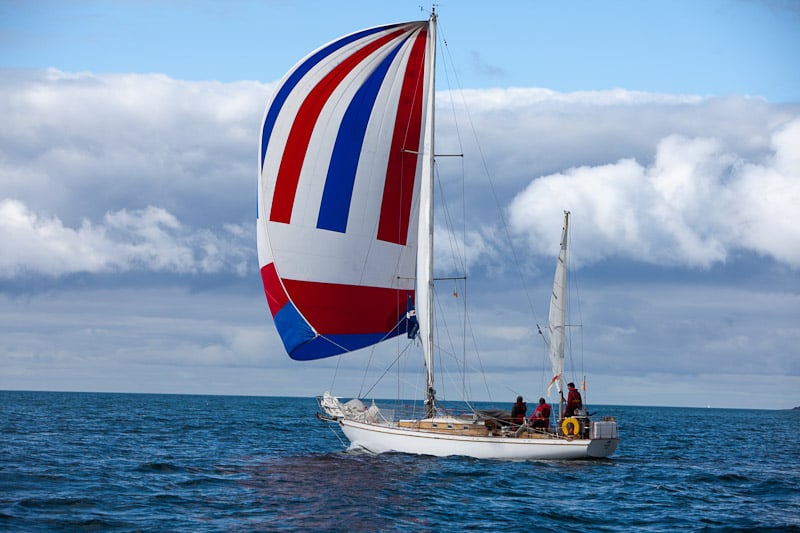
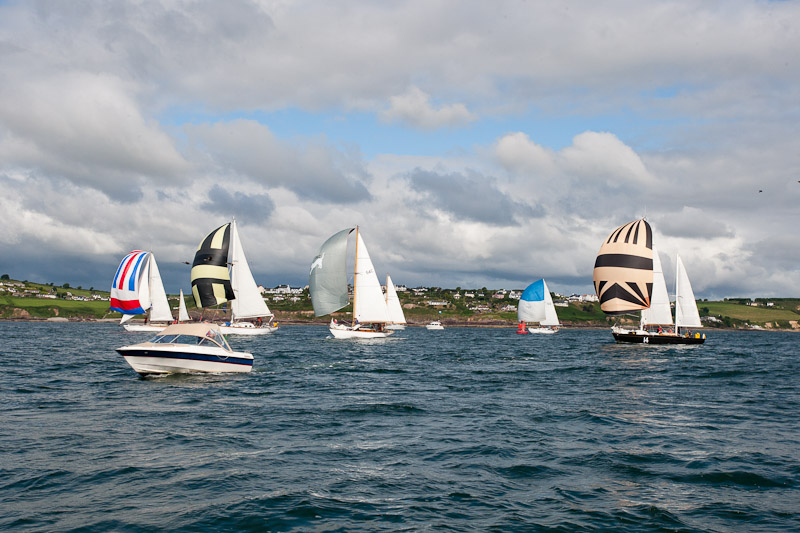
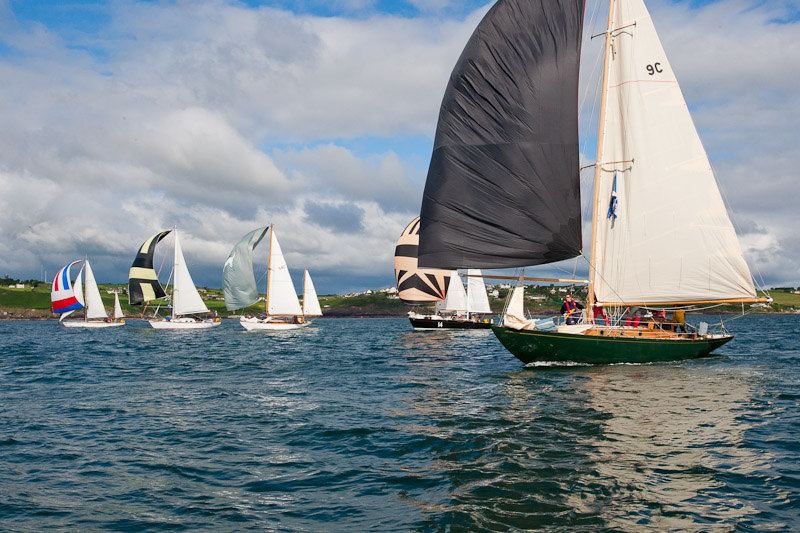
More Photos on the Gallery HERE


























